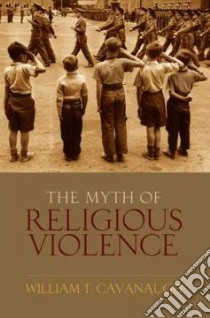- Libreria
- >
- Libri in lingua
- >
- Religione e spiritualità
- >
- Religione e fede
The Myth of Religous Violence - 9780195385045
Un libro in lingua di Cavanaugh William T. edito da Oxford University Press, 2009
- € 74.40
- Il prezzo è variabile in funzione del cambio della valuta d’origine
The myth of religious violence is that religion is endemic to all human cultures and eras, and is prone to absolutism, divisiveness, and irrationality. Religion must therefore be separated from "secular" phenomena like politics for the sake of peace. The secular nation-state appears natural; it corresponds to a universal and timeless truth about the dangers of religion.
William T. Cavanaugh argues that this is a piece of Western folklore underwriting Western violence. Through a thorough genealogy of the concept, Cavanaugh shows that religion is not a universal and transhistorical phenomenon, Religious/secular and religious/political distinctions are modern Western inventions. Cavanaugh shows that what counts as religion and what counts as secular in any context corresponds to how power is arranged, both in the West and in lands colonized by the West.
The myth of religious violence helps create and marginalize a religious "other," prone to fanaticism, to contrast with the rational, peacemaking secular subject. Within the West, the myth underwrites the triumph of the emergent state over the church in the early modern period and the nation-state's subsequent monopoly on its citizens' willingness to sacrifice and kill. Outside the West, the myth of religious violence reinforces the superiority of Western social orders to nonsecular - especially Muslim - social orders. Their violence is seen as fanatical; our violence is justified as a rational means to peacemaking.
Examining academic, government, and journalistic sources, Cavanaugh shows how this myth is used to justify American diplomatic and military actions, including the recent Iraq War. Peace, argues Cavanaugh, depends on a balanced view of violence, and recognition that so-called secular ideologies and institutions can be just as prone to absolutism, divisiveness, and irrationality.
Informazioni bibliografiche
- Titolo del Libro in lingua: The Myth of Religous Violence
- Sottotitolo: Secular Ideology and the Roots of Modern Conflict
- Lingua: English
- Autore: Cavanaugh William T.
- Editore: Oxford University Press
- Collana: Oxford Univ Pr (Hardcover)
- Data di Pubblicazione: 03 Settembre '09
- Genere: RELIGION
- Argomenti : Violence Religious aspects Religion and politics Western countries Religion Philosophy Political aspects Western countries
- Pagine: 285
- Dimensioni mm: 247 x 165 x 25
- ISBN-10: 0195385047
- EAN-13: 9780195385045


